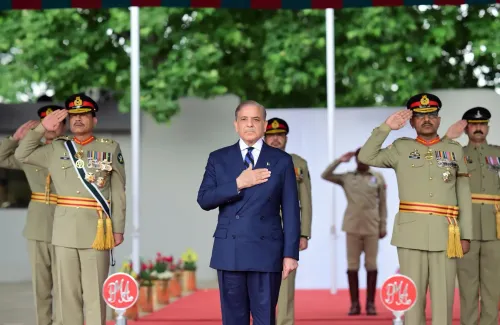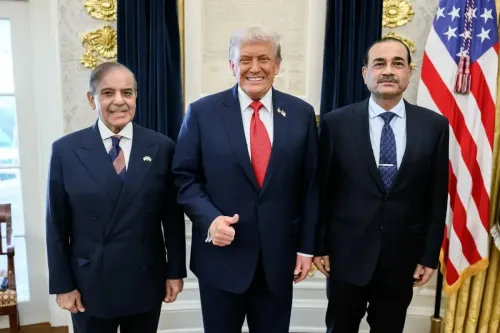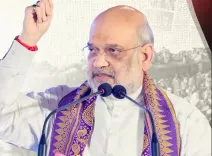Is the Islamic State Reviving the Indian Mujahideen's Network in India?

Synopsis
Key Takeaways
- Islamic State is using Indian Mujahideen infrastructure.
- Key members like Shafi Armar are involved.
- Recent raids highlight ongoing threats.
- Collaboration with HuJI complicates security efforts.
- Indian agencies remain vigilant against these networks.
New Delhi, Oct 10 (NationPress) As Indian authorities remain vigilant against the remnants of defunct terror modules, new evidence indicates that the Islamic State is leveraging the infrastructure of the Indian Mujahideen to bolster its agenda within the nation. When the Indian Mujahideen disbanded, several of its members migrated to Syria, with Shafi Armar emerging as a significant figure overseeing operations targeting India.
Recent raids executed by the Maharashtra Anti-Terrorism Squad (ATS) and Pune Police in connection with the Pune Islamic State investigation have unveiled that Islamic State operatives were utilizing a facility linked to the Indian Mujahideen to advance their objectives. This was revealed during operations at the Ashoka Mews Society in Kondhwa, a location previously active with the Indian Mujahideen. Notably, it had been the site where authorities dismantled a control room of the Indian Mujahideen back in 2008. An official from the Intelligence Bureau remarked that the Indian Mujahideen was notably active between 2008 and 2012.
However, by late 2012, the group's activities began to decline for various reasons. Yasin Bhatkal experienced a fallout with the ISI, feeling abandoned while the founders, Riyaz and Iqbal Bhatkal, enjoyed lives of luxury in Karachi. This discord contributed to the group's disintegration as the Islamic State began its rise in Syria and Iraq, promoting the idea of a Caliphate, which attracted numerous followers.
While Yasin Bhatkal and many of his associates were apprehended, top leaders like Shafi Armar managed to escape to Syria. Under Armar's leadership, numerous former members of the Indian Mujahideen have adopted the ideology of the Islamic State, aspiring to establish a Caliphate in India. This shift signifies that the Islamic State is now capitalizing on the Indian Mujahideen's existing network.
The Islamic State, comprising members from across India, is significantly reliant on the Indian Mujahideen's infrastructure to propagate its agenda.
Officials indicate that while the Islamic State utilizes the Indian Mujahideen's network, there seems to be a strategy aimed at obfuscating law enforcement efforts. Although the Indian Mujahideen as a standalone entity has ceased to exist, its remnants are now integrated into the Islamic State.
Adding to the confusion, in August of this year, the Indian Mujahideen released a seven-minute statement in response to eviction drives in Assam. The group called for its supporters to resist the Indian state, deeming the evictions an assault on specific communities.
According to intelligence analysis, this statement is believed to have originated from either the Islamic State or Harkat-ul-Jihadi Islami (HuJI), which collaborates closely with the Islamic State in the northeast. Such rhetoric may divert law enforcement's focus towards the Indian Mujahideen, reducing scrutiny on the Islamic State and HuJI.
Agencies assert that the Indian Mujahideen is not attempting to resurrect itself; rather, it has become a component of the Islamic State, with members collaborating closely with allied groups like HuJI.
The recent raids linked to the Pune Islamic State module represent merely the tip of the iceberg. Authorities are confident that ongoing investigations will unveil the depth of involvement of former Indian Mujahideen members within the Islamic State in India.









